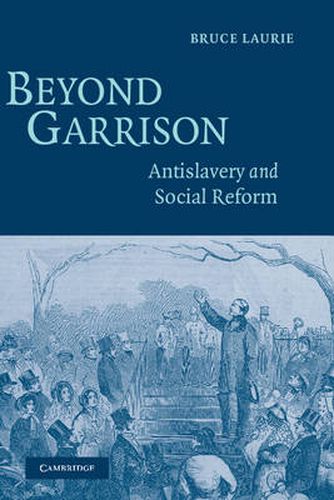Readings Newsletter
Become a Readings Member to make your shopping experience even easier.
Sign in or sign up for free!
You’re not far away from qualifying for FREE standard shipping within Australia
You’ve qualified for FREE standard shipping within Australia
The cart is loading…






Why was Massachusetts one of the few Northern states in which African-American males enjoyed the right to vote? Why did it pass personal liberty laws, which helped protect fugitive slaves from federal authorities in the two decades immediately preceding the Civil War? Why did the Bay State at the time integrate its public facilities and public schools as well? Beyond Garrison finds answers to these important questions in unfamiliar and surprising places. Its protagonists are not the leading lights of American abolitionism grouped around William Lloyd Garrison, but lesser men and women in country towns and villages, encouraged by African-American activists throughout the state. Laurie’s fresh approach trains the spotlight on the politics of such antislavery advocates. He demonstrates their penchant for third-party politics with a view toward explaining the relationship between social movements based on race, class, and nationality, on the one hand, and political insurgency, on the other.
$9.00 standard shipping within Australia
FREE standard shipping within Australia for orders over $100.00
Express & International shipping calculated at checkout
Why was Massachusetts one of the few Northern states in which African-American males enjoyed the right to vote? Why did it pass personal liberty laws, which helped protect fugitive slaves from federal authorities in the two decades immediately preceding the Civil War? Why did the Bay State at the time integrate its public facilities and public schools as well? Beyond Garrison finds answers to these important questions in unfamiliar and surprising places. Its protagonists are not the leading lights of American abolitionism grouped around William Lloyd Garrison, but lesser men and women in country towns and villages, encouraged by African-American activists throughout the state. Laurie’s fresh approach trains the spotlight on the politics of such antislavery advocates. He demonstrates their penchant for third-party politics with a view toward explaining the relationship between social movements based on race, class, and nationality, on the one hand, and political insurgency, on the other.